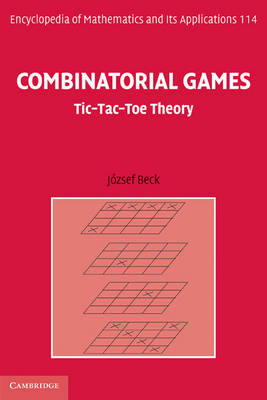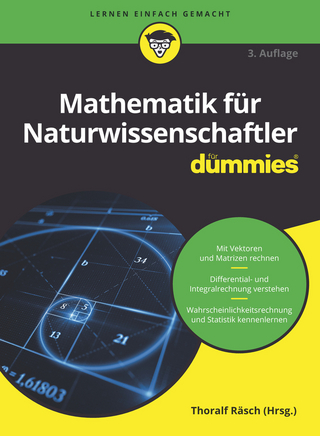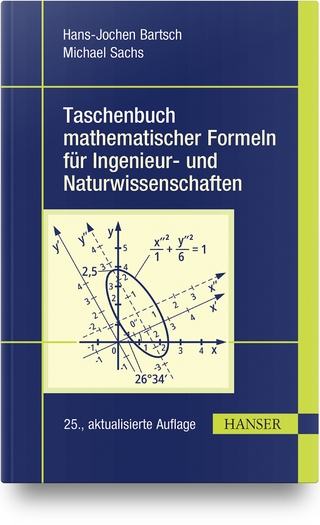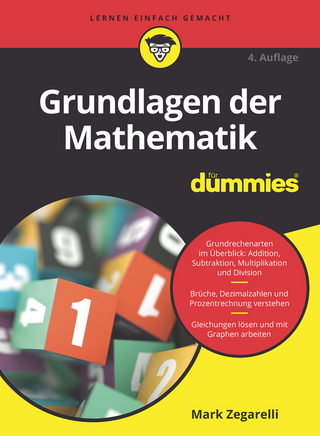
Combinatorial Games
Cambridge University Press (Verlag)
978-0-521-18475-5 (ISBN)
Traditional game theory has been successful at developing strategy in games of incomplete information: when one player knows something that the other does not. But it has little to say about games of complete information, for example, tic-tac-toe, solitaire and hex. The main challenge of combinatorial game theory is to handle combinatorial chaos, where brute force study is impractical. In this comprehensive volume, József Beck shows readers how to escape from the combinatorial chaos via the fake probabilistic method, a game-theoretic adaptation of the probabilistic method in combinatorics. Using this, the author is able to determine the exact results about infinite classes of many games, leading to the discovery of some striking new duality principles. Available for the first time in paperback, it includes a new appendix to address the results that have appeared since the book's original publication.
József Beck is a Professor in the Mathematics Department of Rutgers University. He has received the Fulkerson Prize for Research in Discrete Mathematics and has written around 100 research publications. He is the co-author, with W. L. Chen, of the pioneering monograph Irregularities of Distribution.
Preface; A summary of the book in a nutshell; Part I. Weak Win and Strong Draw: 1. Win vs. weak win; 2. The main result: exact solutions for infinite classes of games; Part II. Basic Potential Technique – Game-Theoretic First and Second Moments: 3. Simple applications; 4. Games and randomness; Part III. Advanced Weak Win – Game-Theoretic Higher Moment: 5. Self-improving potentials; 6. What is the Biased Meta-Conjecture, and why is it so difficult?; Part IV. Advanced Strong Draw – Game-Theoretic Independence: 7. BigGame-SmallGame decomposition; 8. Advanced decomposition; 9. Game-theoretic lattice-numbers; 10. Conclusion; Appendix A. Ramsey numbers; Appendix B. Hales–Jewett theorem: Shelah's proof; Appendix C. A formal treatment of positional games; Appendix D. An informal introduction to game theory; Appendix E. New results; Complete list of the open problems; What kinds of games? A dictionary; Dictionary of the phrases and concepts; References.
| Reihe/Serie | Encyclopedia of Mathematics and its Applications |
|---|---|
| Zusatzinfo | Worked examples or Exercises; 170 Line drawings, unspecified |
| Verlagsort | Cambridge |
| Sprache | englisch |
| Maße | 156 x 234 mm |
| Gewicht | 1110 g |
| Themenwelt | Mathematik / Informatik ► Mathematik ► Allgemeines / Lexika |
| Mathematik / Informatik ► Mathematik ► Angewandte Mathematik | |
| Mathematik / Informatik ► Mathematik ► Finanz- / Wirtschaftsmathematik | |
| Mathematik / Informatik ► Mathematik ► Graphentheorie | |
| ISBN-10 | 0-521-18475-4 / 0521184754 |
| ISBN-13 | 978-0-521-18475-5 / 9780521184755 |
| Zustand | Neuware |
| Haben Sie eine Frage zum Produkt? |
aus dem Bereich


